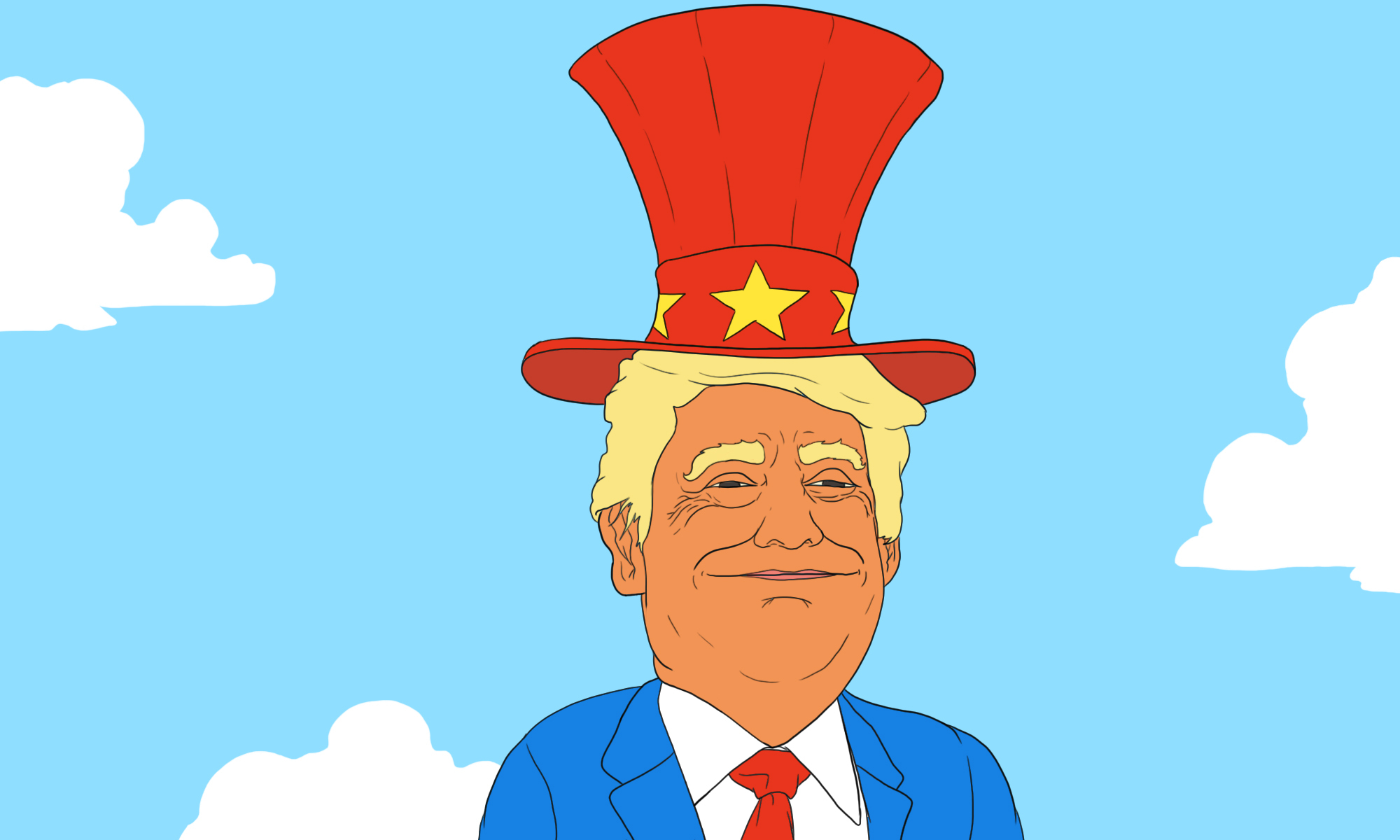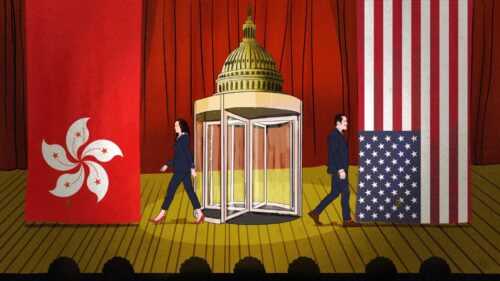Trump is stoking nationalist fervor — in China
How the American president is cementing nationalism among Chinese youth.

A self-proclaimed nationalist, Donald Trump urged others to “use that word” at a 2018 rally in Houston, Texas. But in his attempts to fan the flames of nationalism at home, he is drumming up nationalist sentiment among another audience. Young Chinese spectators watch in dismay and delight — and to many of them, President Trump is evidence of the superiority of the Chinese model.
In China, nationalism tends to rise in times of crisis, especially when the U.S. is perceived as weak or in turmoil. Youth nationalism surged after the 2008 global financial crisis, which China managed to allay through a $4 trillion stimulus. In the wake of COVID-19, the regime has doubled down on state propaganda to seize the narrative in China’s favor. Lucky for them, Trump has made this an easy task.
The state-run People’s Daily proclaimed, “China Has Shown Stunning Collective Action and Cooperative Spirit,” while a parallel article probed, “How Has America Done in the Face of the Epidemic?” The newspaper then began running a daily series called “Questions to American Politicians,” asking, for example, “Is this what you call ‘human rights’?” and, “Aren’t you ashamed to be the virus’ accomplice?”
To be sure, China has long wielded an adept propaganda machine, which would have been deployed to cover up its domestic blunders with or without U.S. blame. But Trump’s fiery rhetoric in the absence of real policy provides fodder to fuel China’s tale of ascension in a post-American global order.
Under the guise of being “tough on China,” Trump hurls insults that embolden the regime, not weaken it. In the early days of his 2016 presidential campaign, Trump accused China of “raping” the U.S. and “stealing” jobs, which has been repeatedly ridiculed across the Pacific in China Daily. It didn’t take long for Trump to deploy “China virus” and “China plague” to distract from his administration’s failure to respond to the pandemic, but this strategy only obscured meaningful criticism of China’s initial cover-up.
The best way to counter China is to offer a convincing alternative to their way of governing. As a Chinese classmate explained to me, the older generation developed an admiration of American social and political culture and deference to American partners in the 1980s that endures today. Those sentiments are not shared by much of the younger generation, which is at once defensive and proud of its country’s achievements.
A recent report cited by NPR revealed that Chinese support for their government has grown during the pandemic. This is only exacerbated by Trump’s widely condemned actions against Chinese students and researchers in the U.S., which Chinese state media has been sure to emphasize. Swelling anti-Chinese sentiment has driven Chinese students in the U.S. to express greater support for their government back home.
Trump has traded in America’s decency and vision for anger and hypocrisy.
President Xí Jìnpíng 习近平 has launched a distinctly nationalistic policy agenda. Not dissimilar to Trump’s own strategy, the party-state harnesses symbolism in the new mass media era to cultivate patriotic enthusiasm. As powerful a force as censorship are the armies of online users on the Chinese internet who praise the government and attack the opposition. These online troops have become more sophisticated in using pop culture to advance their messaging, compared with earlier generations of “angry youth” and the “50 Cent Army” (so-named after professional trolls who get 50 cents every time they post a pro-government message.)
As the young online nationalists adulate the country’s progress and ambitions, the state-run media sings praises right back. The People’s Daily commented: “Those who were born in the 1990s, we trust you. China is embracing the new generation, who stride with confidence and act freely and without restraints.” President Xi even applauded divisive nationalist blogger Zhōu Xiǎopíng 周小平 in a national address, urging netizens to “keep writing works with ‘positive energy.’”
In this context, Trump’s rhetoric has far-reaching consequences. Rising nationalism is dangerous in the short term because it increases the cost of conciliation and leads to more strident foreign policy (as was the case in 2009). As to the long term, let’s not forget that today’s Chinese youth are tomorrow’s Chinese leaders.
Trump has traded in America’s decency and vision for anger and hypocrisy. He has chosen to engage in a gratuitous blame-game with China rather than enact a decisive — and life-saving — policy at home. China’s brazen diplomacy and assertive nationalism would be self-defeating if the U.S. did not stoop to using the very tactics of the country it so hostilely attacks.
The U.S. loses its ability to credibly criticize China on matters of forced sterilization in Xinjiang, police brutality against protesters in Hong Kong, and patriotic education when the same atrocities are mounting under Trump’s watch. (See: forced sterilization at the border, military use against protesters, patriotic education by executive order.) On October 5 — adding insult to injury — the Chinese ambassador to the UN made a joint statement on behalf of 26 countries criticizing the U.S. for violating human rights.
Chinese state media and diplomats paint a picture of China filling the void of abdicated U.S. leadership. The Chinese state media called on the international community to “stand in solidarity” against U.S. bullying. In addition to the U.S. withdrawal from the Paris Agreement, World Health Organization, and UN Human Rights Council, China uses depictions of Trump as a liar to delegitimize any U.S. diplomatic efforts to counter China.
Young Weibo users refer to Trump as “Chuǎngpò” (闯破), meaning to “charge and break things.” Even more popular is “Chuān Jiànguó” (川建国), or “Build-the-Country Trump,” because he has united Chinese people and strengthened the Chinese nation. Most recently, online users have joked that Trump concedes that China is God, having called the coronavirus both “China virus” and his own infection a “blessing from God.” One Weibo account called Trump a “good comrade” because his reelection would further elevate China, while Joe Biden is “crafty and cunning” (老奸巨猾 lǎojiān jùhuá).
When the U.S. fails to exemplify the virtues of a strong democracy, the Chinese are more likely to trust that their government knows best and less likely to question its actions or aspire for change. The first 2020 presidential debate was more than an embarrassing moment for the nation; it was a dangerous moment for democracy. Chinese state media has called it the “epitome of U.S. chaos,” a “defeat for the American people,” and “a recession of U.S. national power.” Amid it all, China’s National Day festivities commenced, with Chinese people waxing lyrical about their country and some even declaring Trump’s infection a “National Day gift.”






